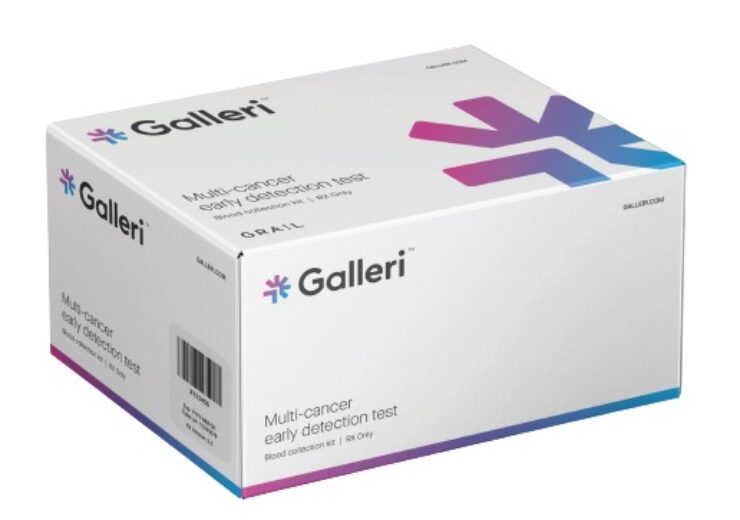The trial is intended to assess and compare the group of Medicare beneficiaries who undergo standard care along with an annual Galleri test against a matched comparator arm of beneficiaries who solely receive routine care

A product shot of the Galleri MCED test. (Credit: GRAIL)
GRAIL, a subsidiary of Illumina, has unveiled plans to start the REACH/Galleri-Medicare study to assess the clinical impact of the Galleri blood-based multi-cancer early detection (MCED) test among Medicare beneficiaries.
The decision follow the Centers for Medicare and Medicaid Services’ (CMS) approval for Medicare coverage of the study and the US Food and Drug Administration’s (FDA) approval of GRAIL’s investigational device exemption (IDE) application.
Galleri-Medicare will be a real-world study of the Galleri MCED test on up to 50,000 Medicare participants.
The trial aims to assess and compare the group of Medicare beneficiaries who undergo standard care along with an annual Galleri test against a matched comparator arm of beneficiaries who solely receive routine care.
For the trial participants, Medicare will pay for Galleri as well as related and routine items and services.
GRAIL CEO Bob Ragusa said: “Multi-cancer early detection holds the promise to detect more cancers earlier, improve cancer outcomes, and reduce overall cancer costs, but only if accessible to all seniors.
“The Galleri-Medicare study demonstrates our commitment to provide broad, equitable access to early cancer detection that is representative of the U.S. population, including groups that are often under-represented in clinical research.
“GRAIL designed the Galleri-Medicare study to meet the aspirations of the Cancer Moonshot’s goal of advancing early detection, add to our robust ongoing real-world evidence generation, and continue to demonstrate Galleri’s clinical benefit for early detection.”
The study is expected to generate large-scale real-world data on Galleri’s performance and outcomes across various Medicare populations.
GRAIL said that the findings will support the clinical evidence collection from its IDE-approved NHS-Galleri trial and the US PATHFINDER 2 trial.
In June this year, the healthcare company said that the Galleri test demonstrated its ability to detect cancer signals and predict the cancer signal origin (CSO) in asymptomatic individuals in real-world analysis.
